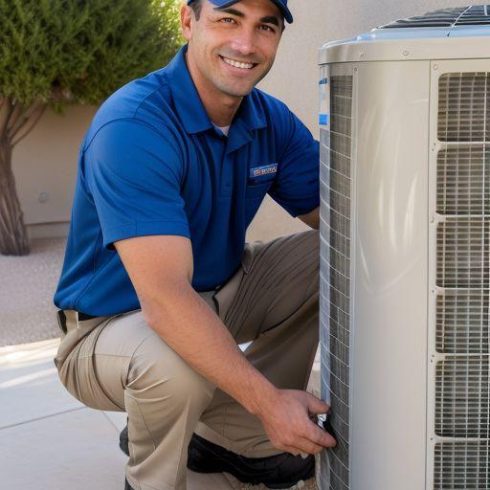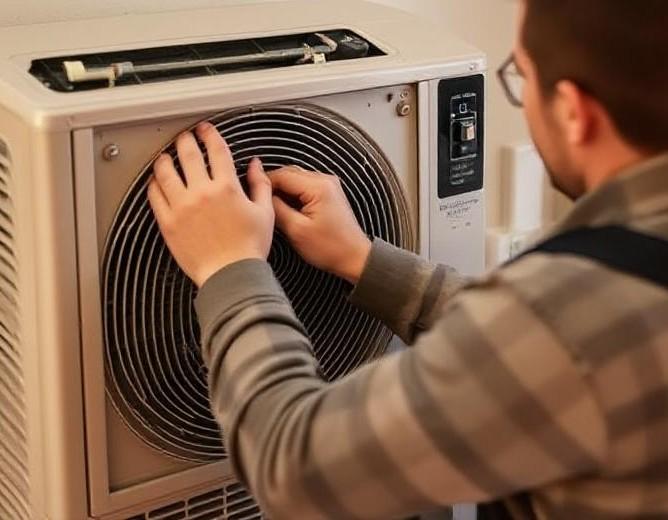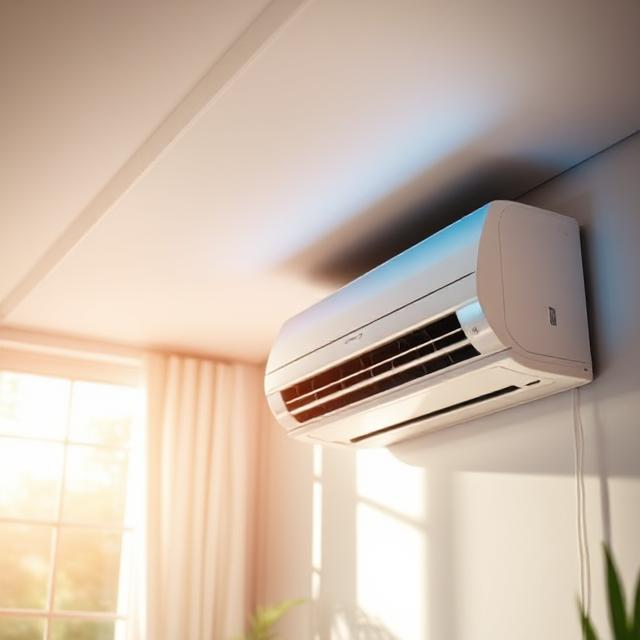Cooling Costs Unveiled: Pricing an Air Conditioner for a 2000 Sq Ft House
Introduction
In the heart of summer, temperatures soar, and with it, so do our expectations for comfort. For many homeowners, air conditioning is not just a luxury but a necessity. However, when it comes to choosing the right air conditioning system for a 2000 square foot house, the choices can be overwhelming. How do you determine which type of air conditioning unit is best suited for your needs? What factors affect pricing? In this comprehensive guide titled Cooling Costs Unveiled: Pricing an Air Conditioner for a 2000 Sq Ft House, we will explore all aspects of air conditioning systems—from understanding thermal dynamics to installation costs and energy efficiency.
Understanding Air Conditioning Thermal Dynamics
What is Air Conditioning Thermal?
Air conditioning thermal refers to the principles that govern how air conditioning systems operate. At its core, thermal dynamics involves heat transfer—how heat moves from one area to another and how it can be controlled or manipulated. Understanding these principles helps homeowners make informed decisions regarding their air conditioning needs.
The Science Behind Cooling
Air conditioners work by removing heat from inside your home and transferring it outside. This process involves several components:

The efficiency of this cooling cycle directly affects both comfort levels and energy costs.

Importance of Sizing Your AC Unit
Sizing your air conditioner correctly is crucial for maximizing efficiency and minimizing costs. An undersized unit may struggle to cool your home, leading to increased wear and tear, while an oversized unit will cycle on and off too frequently, resulting in higher energy bills.
Factors Affecting Air Conditioner Prices
Type of AC System
The type of air conditioning system significantly influences pricing:
- Central Air Conditioning Systems: Best for large homes; generally more expensive but offers consistent cooling.
- Ductless Mini-Split Systems: Flexible installation options; ideal for homes without existing ductwork.
- Window Units: Budget-friendly but less efficient; suitable for smaller spaces.
Energy Efficiency Ratings
Energy Efficiency Ratio (EER) and Seasonal Energy Efficiency Ratio (SEER) ratings are critical metrics when evaluating AC units. Higher-rated units tend to cost more upfront but can lead to significant savings over time through lower energy bills.
Installation Costs
Installation prices vary based on several factors:
- Complexity of installation
- Local labor rates
- Existing infrastructure (ductwork, electrical)
It’s essential to get multiple quotes from licensed HVAC contractors before making a decision.
Estimating Cooling Costs: A Breakdown
Average Cost Range for 2000 Sq Ft Homes
When pricing an air conditioner for a 2000 sq ft house, consider that the average cost typically ranges between $3,500 and $7,500 depending on the factors mentioned above. This range includes equipment and installation.
| Type of AC System | Average Cost | |---------------------------|-------------------| | Central AC | $4,000 - $7,500 | | Ductless Mini-Split | $3,500 - $5,000 | | Window Unit | $150 - $750 |
Monthly Energy Costs
After determining initial costs, ongoing expenses must also be factored in:
A well-maintained central AC unit could consume around 3 kWh per hour during peak use; at an average electricity price of $0.13 per kWh, this translates to approximately $39 monthly during summer months if used consistently.
Choosing the Right AC System
Evaluating Home Insulation
Before selecting an air conditioner type or size, evaluate your home's insulation quality:
- Adequate insulation minimizes cooling loss.
- Consider adding insulation if needed before investing in new cooling systems.
Climate Considerations
Your local climate plays a pivotal role in determining which type of cooling system is most effective:
- Hot & Humid Climates: Central systems may provide better relief.
- Mild Climates: Ductless mini-splits offer flexibility without extensive installation costs.
AC Features That Impact Pricing
Smart Technology Integration
Modern air conditioners often come equipped with smart technology features that allow you to control settings via smartphone apps or voice commands:
While these features add initial costs upfront (typically between $200-$500), they can result in long-term savings on energy bills due to optimized usage patterns.
Noise Levels
Sound ratings are crucial if you're sensitive to noise as some units operate at decibel levels comparable to normal conversation while others can be much louder—potentially disruptive during quiet hours at home.
Cost-Saving Tips When Purchasing an AC Unit
Off-Season Purchases
Consider purchasing your AC unit during off-season months (fall or early spring). During this time:
- Many retailers offer discounts
- HVAC contractors may have more flexible schedules
This strategy could save you hundreds on both equipment and installation costs.
Tax Credits & Rebates
Check local utility companies or state programs that provide rebates or tax credits for installing energy-efficient appliances:

- Federal tax credits may also apply under certain circumstances.
Always consult with a tax professional regarding eligibility before making any assumptions about potential savings!
Maintaining Your Air Conditioning System
Regular Maintenance Tasks
Perform regular maintenance checks to keep your system running efficiently:
These tasks can help extend the lifespan of your unit while improving performance!
Signs You Need Repairs
Be vigilant about signs indicating potential issues within your HVAC system such as:
- Inconsistent cooling throughout space
- Unusual noises during operation
- Foul odors emitted from vents
Address concerns promptly before they escalate into costly repairs or replacements!
Frequently Asked Questions (FAQs)
1. How long does an air conditioner last?
Generally speaking, well-maintained units can last between 15–20 years depending on usage frequency and quality of service performed over time! However, older models may require replacement sooner due to advancements in technology providing better efficiencies today compared with earlier You can find out more designs!
2. Is it worth investing in high-efficiency models?
Yes! Although high-efficiency models often come with higher upfront costs initially—these investments pay off over time through reduced utility bills resulting from their superior performance levels versus standard units!
3. Can I install my own AC unit?
While DIY installations might seem tempting—particularly with window units—the complexities involved with central systems suggest hiring professionals ensures proper setup plus compliance with building codes guaranteeing safety standards met throughout process!
4. Are there financing options available for purchasing new systems?
Many HVAC companies offer financing plans allowing customers manageable payment structures spread out over extended periods rather than lump sum payments upfront easing budget constraints significantly while still acquiring necessary equipment!
5. What should I look for when hiring an HVAC contractor?
Seek out licensed professionals who possess strong reputations backed by customer reviews along with warranties guaranteeing workmanship quality reassuring you against potential future issues arising following service completion ensuring peace-of-mind moving forward!
6. How often should I clean my AC filters?
Typically recommended every month depending upon dust accumulation levels—more frequently during peak usage seasons like summertime—as clogged filters hinder airflow causing strain increasing overall operational costs needlessly!
Conclusion
In conclusion, navigating the world of air conditioning pricing requires careful consideration across numerous dimensions—from understanding thermal dynamics impacting efficiency through evaluating various types available tailored specifically towards unique household requirements fitting within budget constraints effectively achieving desired comfort levels ultimately enhancing quality living experience year-round! By considering all aforementioned factors outlined throughout this article titled "Cooling Costs Unveiled: Pricing an Air Conditioner for a 2000 Sq Ft House," homeowners can confidently make informed decisions ensuring optimal investment returns while minimizing unnecessary expenses associated!